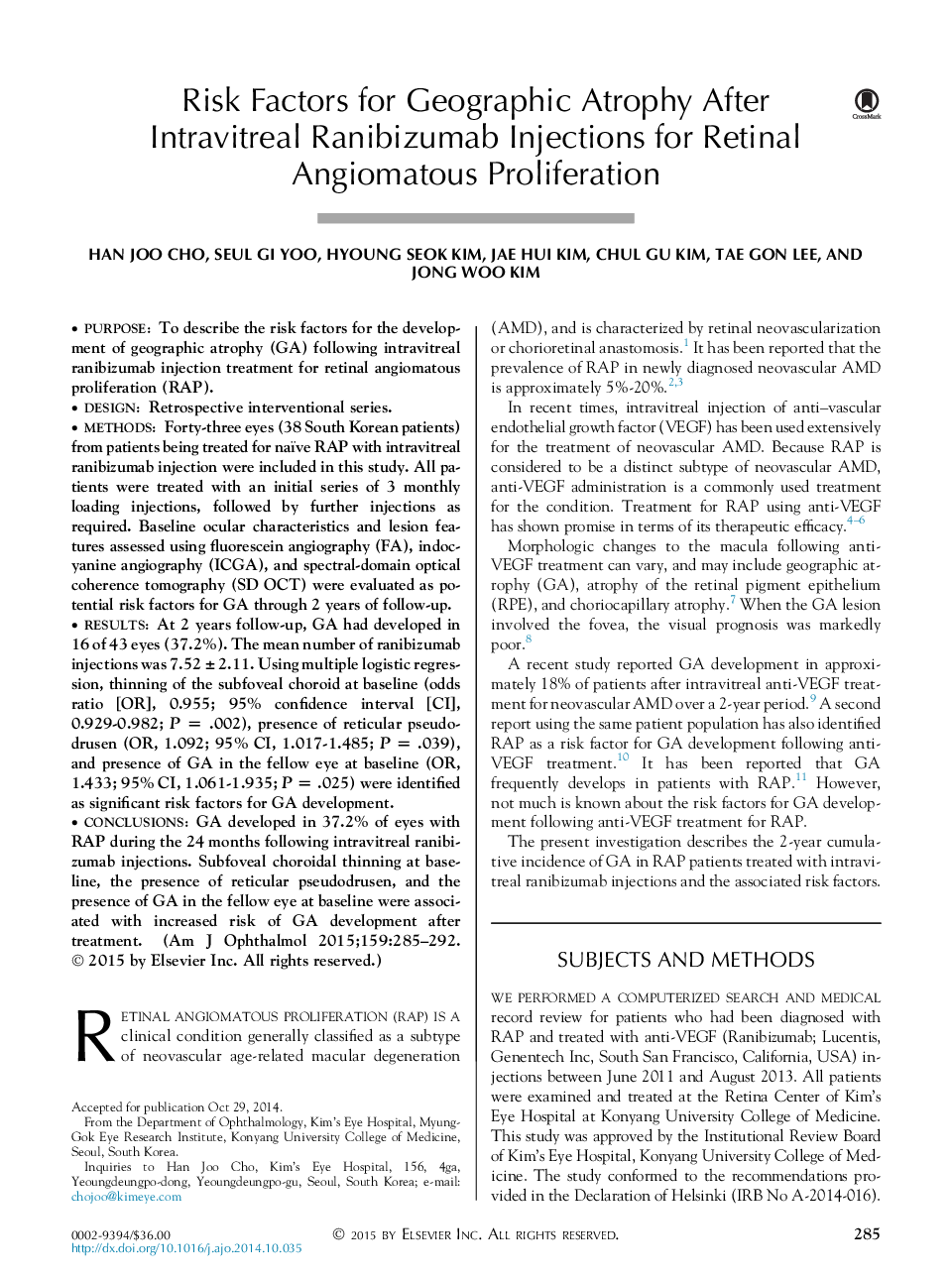| کد مقاله | کد نشریه | سال انتشار | مقاله انگلیسی | نسخه تمام متن |
|---|---|---|---|---|
| 6195641 | 1602127 | 2015 | 9 صفحه PDF | دانلود رایگان |

PurposeTo describe the risk factors for the development of geographic atrophy (GA) following intravitreal ranibizumab injection treatment for retinal angiomatous proliferation (RAP).DesignRetrospective interventional series.MethodsForty-three eyes (38 South Korean patients) from patients being treated for naïve RAP with intravitreal ranibizumab injection were included in this study. All patients were treated with an initial series of 3 monthly loading injections, followed by further injections as required. Baseline ocular characteristics and lesion features assessed using fluorescein angiography (FA), indocyanine angiography (ICGA), and spectral-domain optical coherence tomography (SD OCT) were evaluated as potential risk factors for GA through 2 years of follow-up.ResultsAt 2 years follow-up, GA had developed in 16 of 43 eyes (37.2%). The mean number of ranibizumab injections was 7.52 ± 2.11. Using multiple logistic regression, thinning of the subfoveal choroid at baseline (odds ratio [OR], 0.955; 95% confidence interval [CI], 0.929-0.982; P = .002), presence of reticular pseudodrusen (OR, 1.092; 95% CI, 1.017-1.485; P = .039), and presence of GA in the fellow eye at baseline (OR, 1.433; 95% CI, 1.061-1.935; P = .025) were identified as significant risk factors for GA development.ConclusionsGA developed in 37.2% of eyes with RAP during the 24 months following intravitreal ranibizumab injections. Subfoveal choroidal thinning at baseline, the presence of reticular pseudodrusen, and the presence of GA in the fellow eye at baseline were associated with increased risk of GA development after treatment.
Journal: American Journal of Ophthalmology - Volume 159, Issue 2, February 2015, Pages 285-292.e1